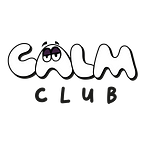CBD (cannabidiol) is a phytocannabinoid found in the cannabis plant. According to a report from the World Health Organization, “In humans, CBD exhibits no effects indicative of any abuse or dependence potential”. CBD is legal in the UK and many countries across the world.
The science
Here we will explain the endocannabinoid system (ECS) and how CBD works with the ECS in plain English. The ECS is responsible for regulating and balancing many processes in the body. These include pain, memory, mood, appetite, stress, sleep, metabolism, immune function, and the reproductive function.
How does it work? — The system is made up of endocannabinoids, receptors and enzymes.
Endocannabinoids — these are made by the body and include anandamide and 2-AG
Receptors — the two main receptions are the CB1 receptors (found in the central nervous system) and the CB2 receptors (found in your peripheral nervous system particularly in the immune cells)
Enzymes — fatty acids amide hydrolase breaks down the anandamide and monoacylglycerol acid lipase breaks down the 2-AG
The body produces the endocannabinoids which then bind to the receptors. The effect will depend on where the receptor is within the body and which receptor it binds to. The enzymes will then break down the endocannabinoids when they have carried out their function.
Phytocannabinoids — There are over 100 known phytocannabinoids found in the cannabis plant including CBD and THC. These bind to the receptors in the same way as the endocannabinoids that the body creates itself which is why there is so much medical research into phytocannabinoids. Research has already discovered that THC binds to our CB1 receptors and CBD binds to our CB2 receptors.
This explains why cannabinoids are purported to be a cure for all. The ECS is responsible for balance across so many process in the body. Sometimes our body does not produce enough endocannabinoids and it is thought that by adding phytocannabinoids we can help to bring balance to our ECS.
But is there an ideal dose of CBD
If you’ve recently decided to experience the effects of CBD, the first question you may ask is ‘how much should I take?’.
CBD is measured in MG — All CBD products should be sold with information on how many milligrams (MG) each serving contains. It will likely have the total MG in bold on the front of the packaging but it is important to know what an individual serving contains. For example a 300mg pack of 30 gummies will contain 10mg per gummy. Milligrams is a unit of weight equal to one thousandth of a gram.
The food standard agency (FSA) have made the following statement on CBD dosage.
Emily Miles, Chief Executive of the Food Standards Agency, said:
‘Today, we are advising that CBD could be risky for vulnerable groups, and suggesting an upper limit of 70mg a day for everyone else taking the product.’
Start slow and record your experience
The correct CBD dosage is unique to each individual so the best way to identify this is to gradually increase your intake when needed. You could start with 10mg once a day and during this period record variables such as ; your weight, what you ate, the amount of CBD administered, how you felt before and after, and anything else that you believe effects the experience. Based on your experiences you may then chose to increase your dosage to 20mg a day and then track the different effects. From here you can adjust dosage and record your experience down to the last detail until you’ve dialed in just the right amount for your circumstances.
CBD is a non-toxic substance, meaning it is not known to have any poisonous effects when it’s consumed by humans. Unlike dangerous drugs such as cocaine and heroin, no human deaths have ever been reported due to CBD use. However it is possible to use too much CBD at once and experience a range of potential side effects. More information on potential side effects can be found here.
When should I take CBD?
One of the question we get asked the most is; When should I take CBD?
CBD may cause effects for you individually that make a certain time better than another. Some people report awakening effects from CBD and some feel more relaxed after consumption. If you do feel energised you may decide that the morning works better for you, or possibly at lunchtime to give you a boost for the rest of the day. Whereas those who feel more relaxed, may choose to take CBD in the evening.
CBD remains active in our bodies for approximately 4–12 hours. This will depend on your level of intake, method of consumption and individual factors such as your height and weight. You may decide to reduce the number of mg you consume in one sitting and spread this out throughout the day to offer a more sustained level of CBD in your system.
In summary, there is no hard and fast answer on when it is best to take CBD as this will vary depending on many of the factors above. It is best to make the decision based on your unique circumstance and your schedule.
Current research for reference;
Antioxidative and Anti-Inflammatory Properties
Disclaimer; Cold-Pressed Cannabinoids (UAOTP ltd) do not sell or distribute any products that are in violations of the United Kingdom Misuse of Drugs Act 1971. All our CBD products are extracted from industrial hemp and contain less than 0.2% THC. All of our edible products are food supplements and should not replace a varied and balanced diet. Our products are not medicinal and therefore not intended to cure, treat or prevent any ailments or disease. Please consult a doctor before taking CBD if you are currently taking medication.
